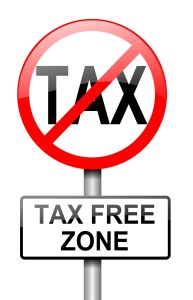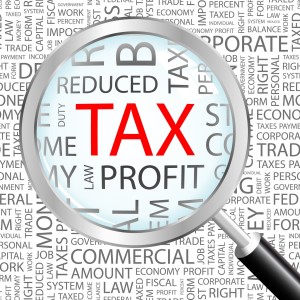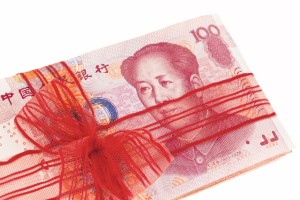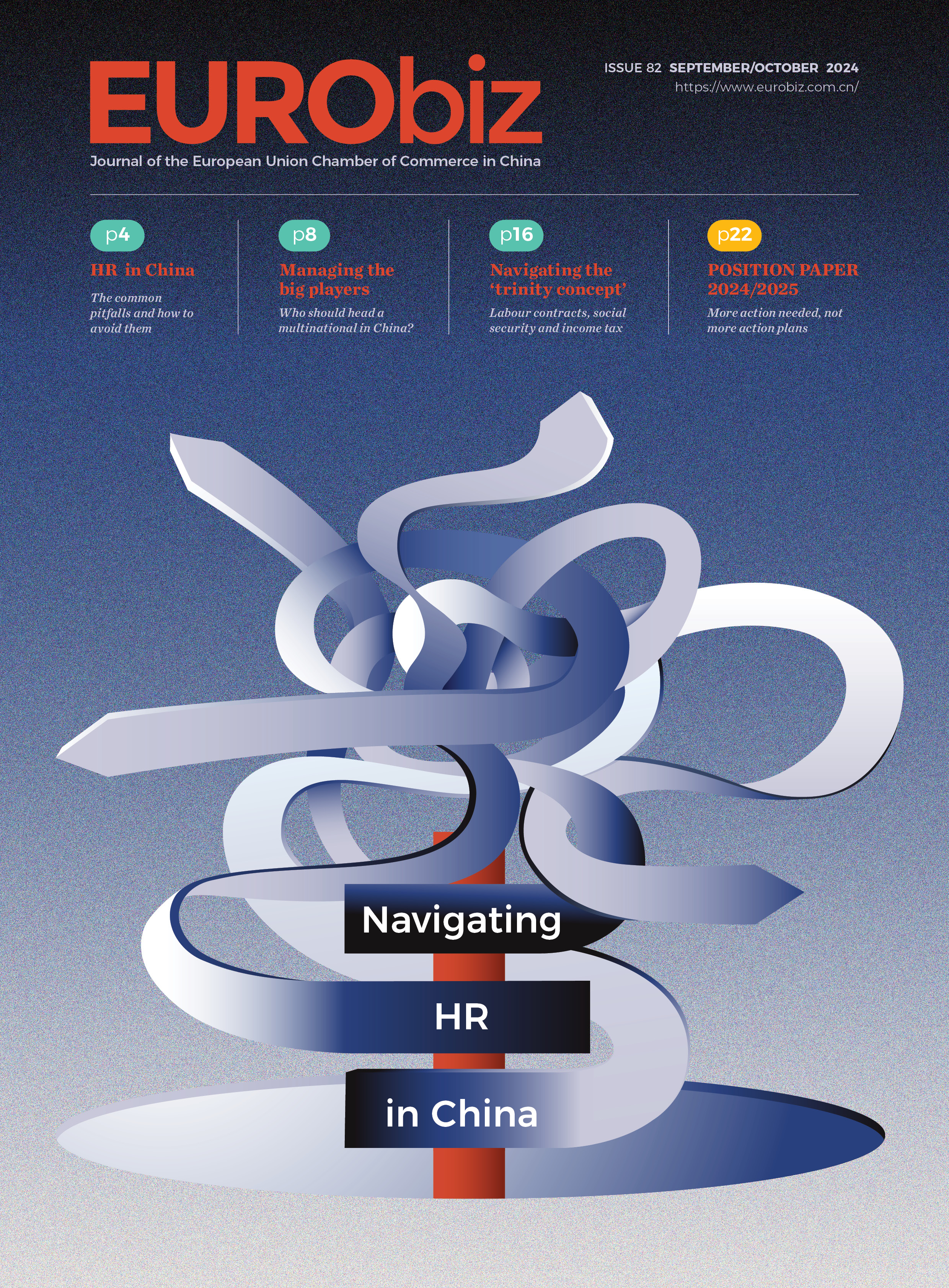 The overall purpose of the China (Shanghai) Pilot Free Trade Zone (CSPFTZ or Zone) is to implement various pilot reforms associated with currency liberalisation, opening of the foreign and domestic financial markets as well as trade and logistics for both inbound and outbound China business. Kristina Koehler-Coluccia, China Director at Klako Group, gives an overview of the plan and provides details on the four main taxation policies that have been adopted on a pilot basis.
The overall purpose of the China (Shanghai) Pilot Free Trade Zone (CSPFTZ or Zone) is to implement various pilot reforms associated with currency liberalisation, opening of the foreign and domestic financial markets as well as trade and logistics for both inbound and outbound China business. Kristina Koehler-Coluccia, China Director at Klako Group, gives an overview of the plan and provides details on the four main taxation policies that have been adopted on a pilot basis.
The Framework Plan for the China (Shanghai) Pilot Free Trade Zone outlines four main principles:
Improvement of government administration
The Chinese Government has been frequently criticised for its overzealous bureaucracy. Complicated pre-approval and administrative processes have historically hindered businesses setting up operations, particularly foreign-invested enterprises. The CSPFTZ aims to eliminate this bureaucracy and allow domestic and foreign companies alike to register via a simple filing procedure with local authorities, provided the business is not excluded in some way by the Special Administrative Measures (Negative List) on Foreign Investment Access to the China (Shanghai) Pilot Free Trade Zone (2013) (the Negative List).
The Negative List
This is the first time in China that a Negative List has been adopted for investment. Any sector not specifically prohibited by the list will be permitted and will only be subject to a simple filing process with the CSPFTZ authorities. Issued by the Shanghai Municipal Government on 30th September the complete list includes 18 industrial categories. In the preliminary review, the list mainly followed the restricted and prohibited industries listed in the Catalogue of Industries for Guiding Foreign Investment (Foreign Investment Catalogue).
Free flow of capital
One of the main objectives of the CSPFTZ is to explore the free convertibility of the renminbi (RMB) between China and the rest of the world. It is clear that initially this will only be permitted between the CSPFTZ and the outside world but the actual implementation processes will take time to properly define.
Free Trading and Shipping
The CSPFTZ aims to liberalise and improve the efficiency of customs bureaux within its confines in order to make the Zone a transition centre of goods as well as a global trading hub.
One major difference between the CSPFTZ and all the other economic zones that have been opened and are operating in China is that it will not form a special regime to attract foreign investment. The goal, rather, is to reform the existing legal, tax, customs and financial systems in the Zone in order for it to be expanded and utilised throughout the country; the CSPFTZ will not adopt any preferential treatment or benefit that cannot be applied elsewhere in China. A perfect example of this is the Enterprise Income Tax rate. It had been rumoured that the rate would be lowered from 25 per cent to 15 per cent in the CSPFTZ , yet so far no circular has been issued on this. Instead, as predicted by some, tax reforms seem to be in the form of free trade and shipping as a way of benefitting investment.
The Ministry of Finance, the General Administration of Customs and the State Administration of Taxation issued the Notice on Relevant Import Taxation Policies Application to the China (Shanghai) Pilot Free Trade Zone on the 24th October, 2013. There are four main policies that have been/will be adopted in the zone on a pilot basis:
 1. Lease/purchase of aircraft
1. Lease/purchase of aircraft
Domestic leasing companies registered within the CSPFTZ or project subsidiaries shall enjoy the preferential value-added tax (VAT) policies described in the Notice of the Ministry of Finance and the State Administration of Taxation on Adjusting Relevant Value Added Tax Policies Applicable to Aircraft Import (Cai Guan Shui [2013] No.53) and the Notice of the General Administration of Customs on Adjusting Relevant Issues concerning Import-Value Added Tax on Aircraft Import (Shu ShuiFa [2013] No.90) for both purchasing overseas aircrafts whose empty weight is no less than 25 tons, upon approval by the State departments, and leasing the same to domestic airline companies for use. A five per cent reduced import VAT is applicable on overseas purchases of these aircraft.
2. Taxation on domestic sales
Goods produced, processed and assembled by companies in the CSPFTZ and sold to other regions in Mainland China will still be subject to import VAT, customs duty and consumption tax (if applicable) in accordance with the regulations. The principle rule is that the goods will be treated as imported if they are sold to the domestic market.
This regulation ties together with the new customs regulation of a supervisory system for the exit and entry of goods between the CSPFTZ and other areas within China. Under this system, a check-point and e-information network model will be adopted so as to provide an efficient and sound supervision system. Strict quality and safety risk controls will be promoted within the zone as well.
According to Circular 75, a pilot scheme will be implemented under which the import duty may be levied based on the corresponding imported materials or taxed based on its original customs declaration status, as opposed to being based on the finished goods.
Note that there is no specific information on the implementation rules. Once these are issued it will be interesting to make a comparison on how this differs with other bonded areas and export processing zones
3. Importation of machinery and equipment
Certain imports of machinery, equipment and other such products necessary for the functioning of manufacturing companies and service-oriented manufacturing companies within the zone will be exempted from tax, excluding goods imported by companies intended to produce daily life services. According to Circular 75 this policy does not build up a new duty free import regime and the policy in the CSPFTZ should still be within the framework of the existing policies in other zones.
4. Bonded Exhibition Trading Platforms
This policy will impact the consumer retail industry more so than the industrial, trading and manufacturing sectors. Under the premise of strict compliance with import taxation policies on cargoes, bonded exhibition and transaction platforms are allowed to be established in designated areas. It is expected, and has been seen, that consumer products can then be sold/traded through this platform.
 In addition the Framework Plan for the China (Shanghai) Pilot Free Trade Zone released in September outlines further policies and goals for the zone. This includes the following in respect to outbound investment from China and equity incentives for highly-skilled employees or employees in short supply:
In addition the Framework Plan for the China (Shanghai) Pilot Free Trade Zone released in September outlines further policies and goals for the zone. This includes the following in respect to outbound investment from China and equity incentives for highly-skilled employees or employees in short supply:
- For companies or individual shareholders within the zone that carry out asset restructuring activities, such as investment by means of non-monetary assets, the income tax payable due to the increase in asset valuation can be paid by instalments within a five-year period.
- Where companies within the zone award highly-skilled employees or employees in short supply by means of stock options, the relevant individual income tax may be paid by instalments (this is similar to the policy in Zhongguancun High-Tech Park in Beijing and other districts where they allow the payment over five years).
Additionally, in line with the direction of tax reform and international practice, tax policies will be studied to support the development of overseas equity investment and offshore business, under the condition that such tax policies do not lead to base erosion or profit shifting.
The detailed stipulations in many aspects are still under development, particularly as we wait on the actual implementation guidelines, but in general foreign investors will see that the new policies really only affect certain sectors and certain industries rather than the full spectrum of companies permitted to establish in the Zone. The key is to wait on further circulars that will be issued in relation to the implementation guidelines.
Klako Group is an international accounting and management consulting firm established in 1979. They provide a wide range of market entry consulting, incorporation, tax, accounting, human resource and trade services to organisations interested in entering and expanding throughout China, Hong Kong and Singapore. Klako Group is managed by an international and local team of over 120 certified public accountants, consultants and legal professionals who work in eight offices in China (including Beijing, Chengdu, Dalian, Guangzhou, Hangzhou, Shanghai, Shenzhen and Tianjin), Hong Kong and Singapore. Their International Desks speak English, German, Spanish, French, Italian, Portuguese, Russian and Japanese.


Recent Comments